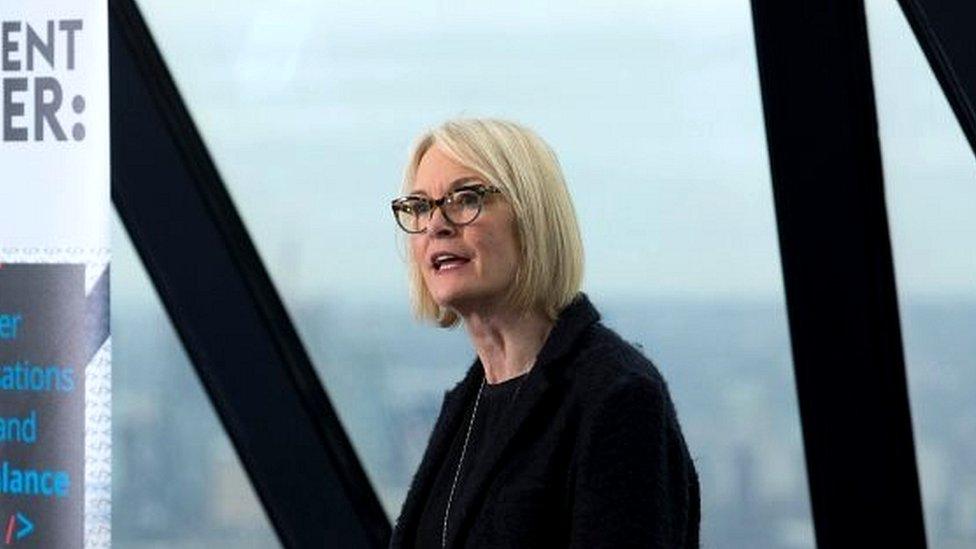Labour call to break up digital giants to protect users
- Published

Digital media giants too often choose ad sales over accuracy and "profit from children rather than protect them", says Labour's deputy leader Tom Watson.
A Labour government would create a new regulator with the power to break up tech firms if they did not curb harmful content, he said in a speech.
He admitted this would not be easy because they are global companies.
But he said the current regulatory regime was too weak and fragmented to deal with the "crisis" in data abuse.
Mr Watson, who is also Labour's shadow digital minister, says companies like Facebook and Google are able to achieve "data monopolies" by swallowing up smaller rivals.
This, he feels, creates a huge "imbalance of power" between the firms and the people who use their services.
"Each year, businesses make billions by extracting and monetising personal data from each and every one of us.
"And, yes, they offer us a service in return. But only worth a fraction of the fortune they gain.
"This is surveillance capitalism. The power dynamic between platforms and users has long been lopsided."
After Molly Russell took her own life, her family discovered distressing material about suicide on her Instagram account
He was talking in reference to the death of Molly Russell, 14, whose family found she had viewed content on social media linked to anxiety, depression, self-harm and suicide before taking her own life in November 2017.
"This is the kind of harm online content can contribute to when the right safeguards are not in place, a consequence of an industry that too often chooses to profit from children, rather than protect them."
The government is working on new laws to force digital companies to take down content judged to be harmful more quickly.
Culture Minister Margot James warned on Tuesday they would face new legislation unless they do more to protect their users from content promoting suicide and self-harm.
"Social media companies have always enjoyed legal protection from liability for user generated content and this laissez-faire environment has led some companies to pursue growth and profitability with little regard for the security and interests of their users," said Ms James.

Margot James is promising new legislation to curb harmful content
She said the government would "soon" be publishing an "online harms White Paper", which would be followed by a consultation on new laws.
Mr Watson said Labour would consider backing any moves to reclassify social media firms as publishers, meaning they are legally responsible for the content that appears on their platforms.
But he said the government appeared unwilling to take the tough action he says is needed to curb data abuse.
He told BBC Radio 4's Today programme: "An army of lobbyists and lawyers have made sure these big data monopolies have slipped through the cracks of regulation.
"So we say we need a new regulator to deal with it."
Under Labour's plans, the existing bodies tasked with policing online content, from the Advertising Standards Authority to the Information Commissioner, would hand over to a new watchdog.
This would have the power to levy large fines and, if necessary, break up the social media companies.
Mr Watson said he "did not have all the answers" and it would be "very hard" to take action against global companies, but it was a challenge that had to be met.
In his speech, Labour's deputy leader also restated the party's pledge to introduce a digital bill of rights and a legal duty of care to give more powers and protections to consumers.
And he suggested new rules be introduced to protect democracy from subversion online, with a set of so-called "digital democracy guarantees".
"Too many platforms choose ad sales over accuracy, clickbait over credibility.
"We will work with civil society groups to cultivate public knowledge about disinformation, and we will deliver media literacy across our education system to support the next generation of voters."
- Published4 February 2019
